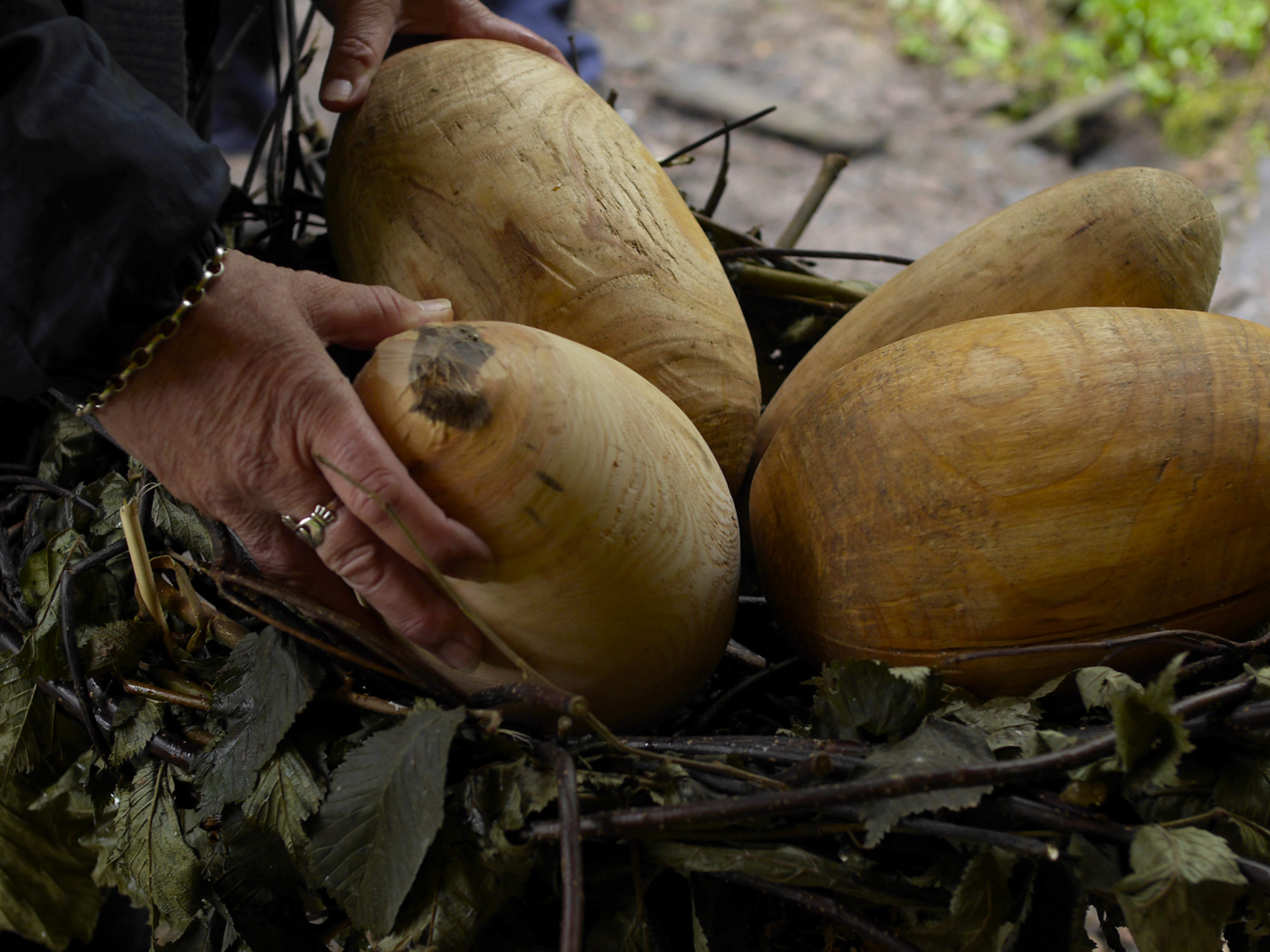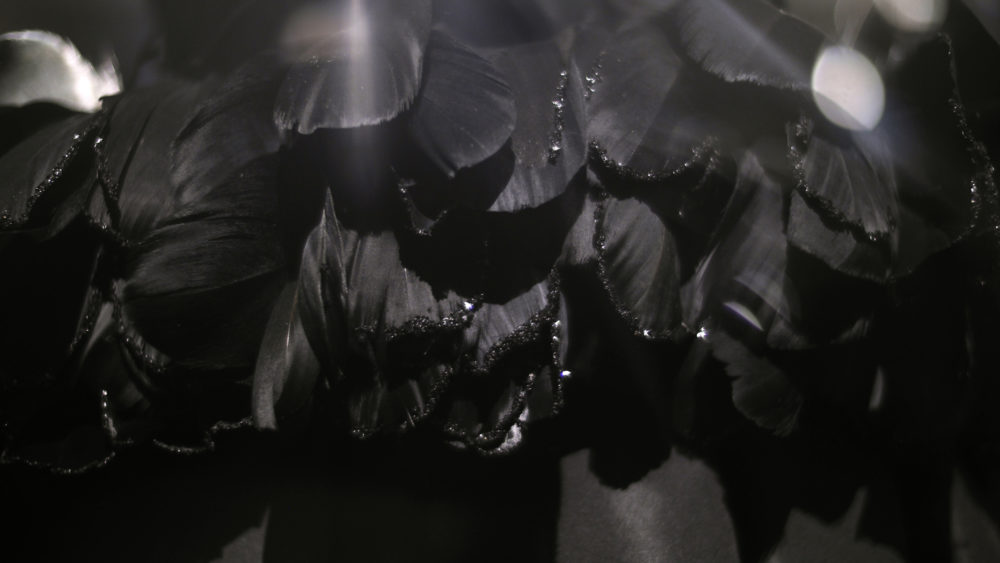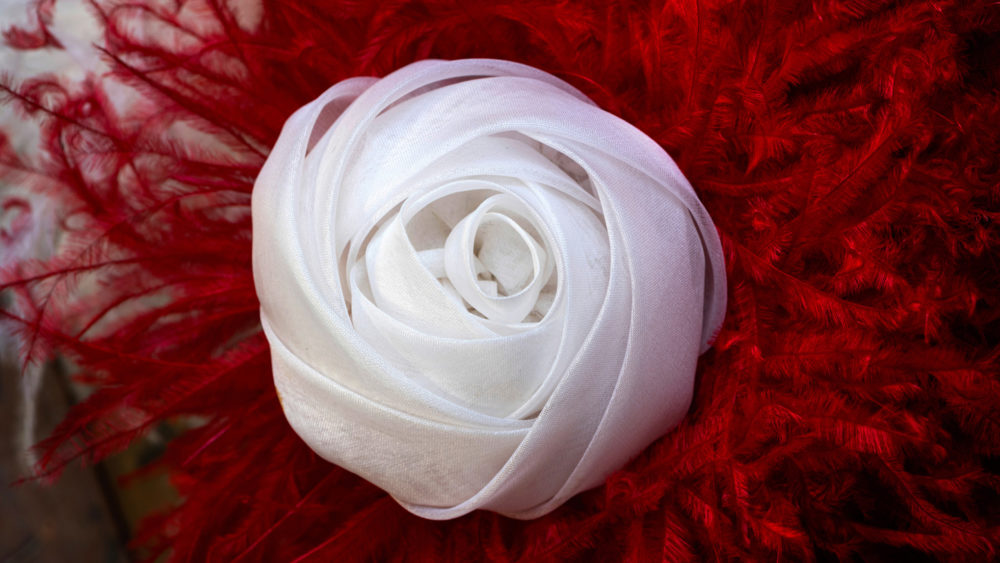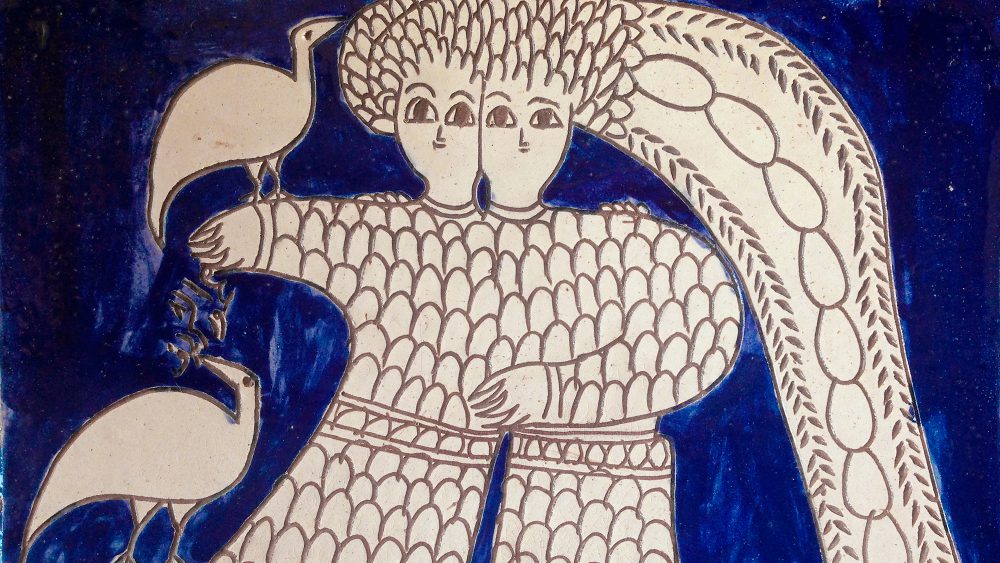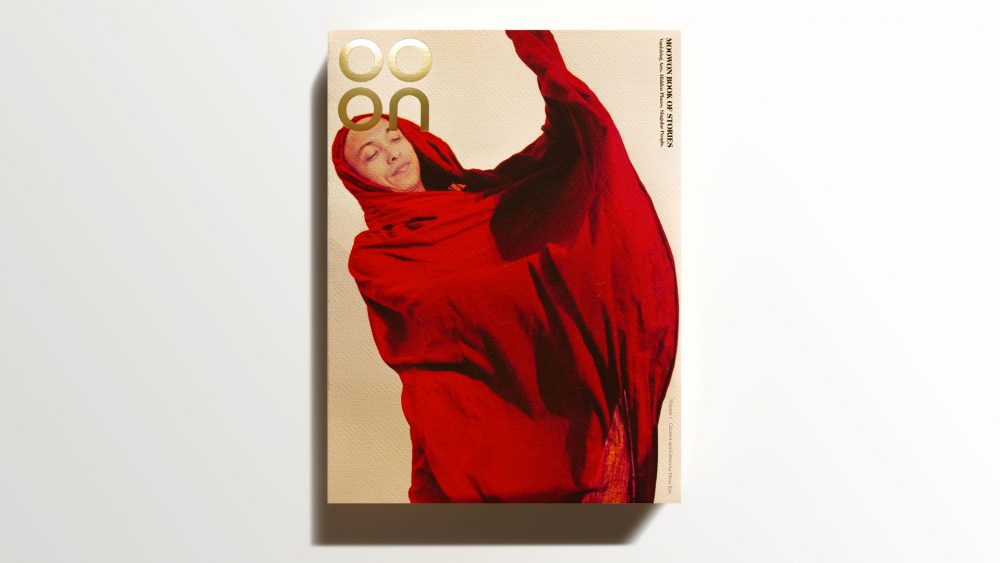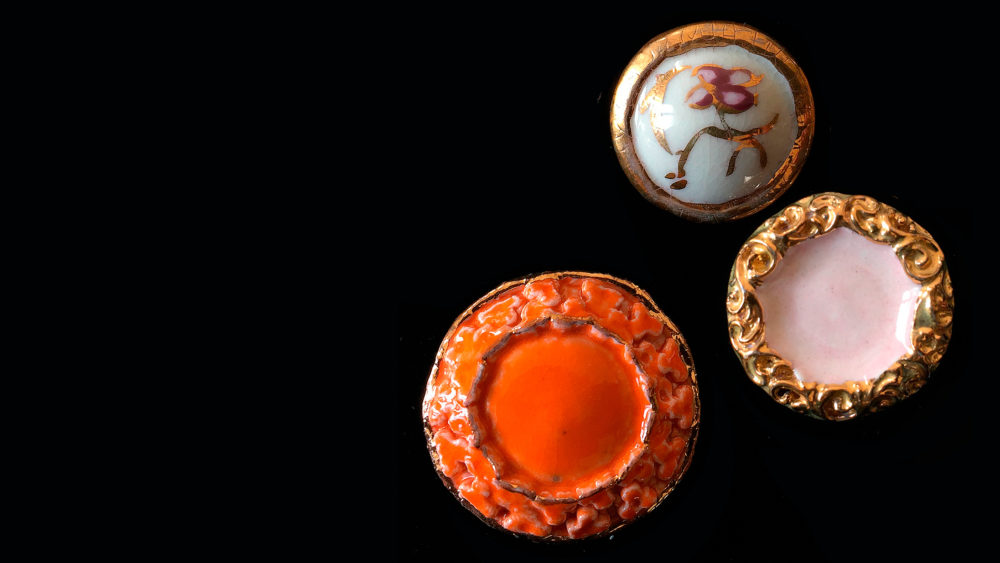We associate crafts and handmaking with what is intrinsically human, therefore beautiful. They are also filters through which we reflect on sustainability, culture, and preservation. Yet, as an activity that can induce a heightened level of sensorial and mental gratification, in addition to a sense of achievement that comes from giving birth to a form, what about its power to heal?
Many of us will have experienced that indescribable joy when our hands come into contact with nature's elemental materials, such as wood, soil, stones, and natural fibers. This, combined with an immersive natural backdrop, a caring and supportive human environment, and the therapeutic and empowering act of making things by hand, is a form of natural health service that treats and cares for people in profound ways that may prove even more beneficial and powerful than conventional medical treatments.
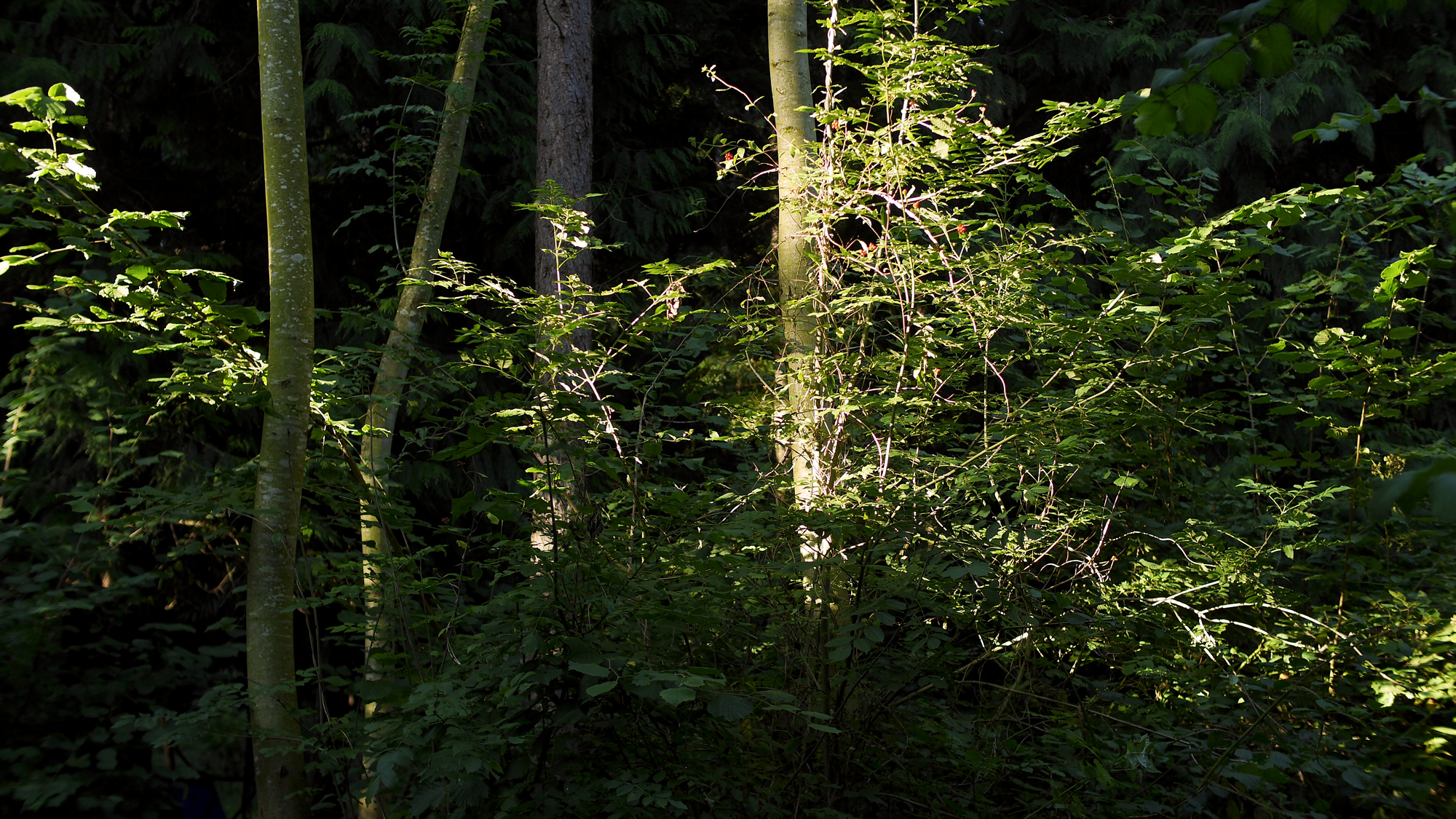
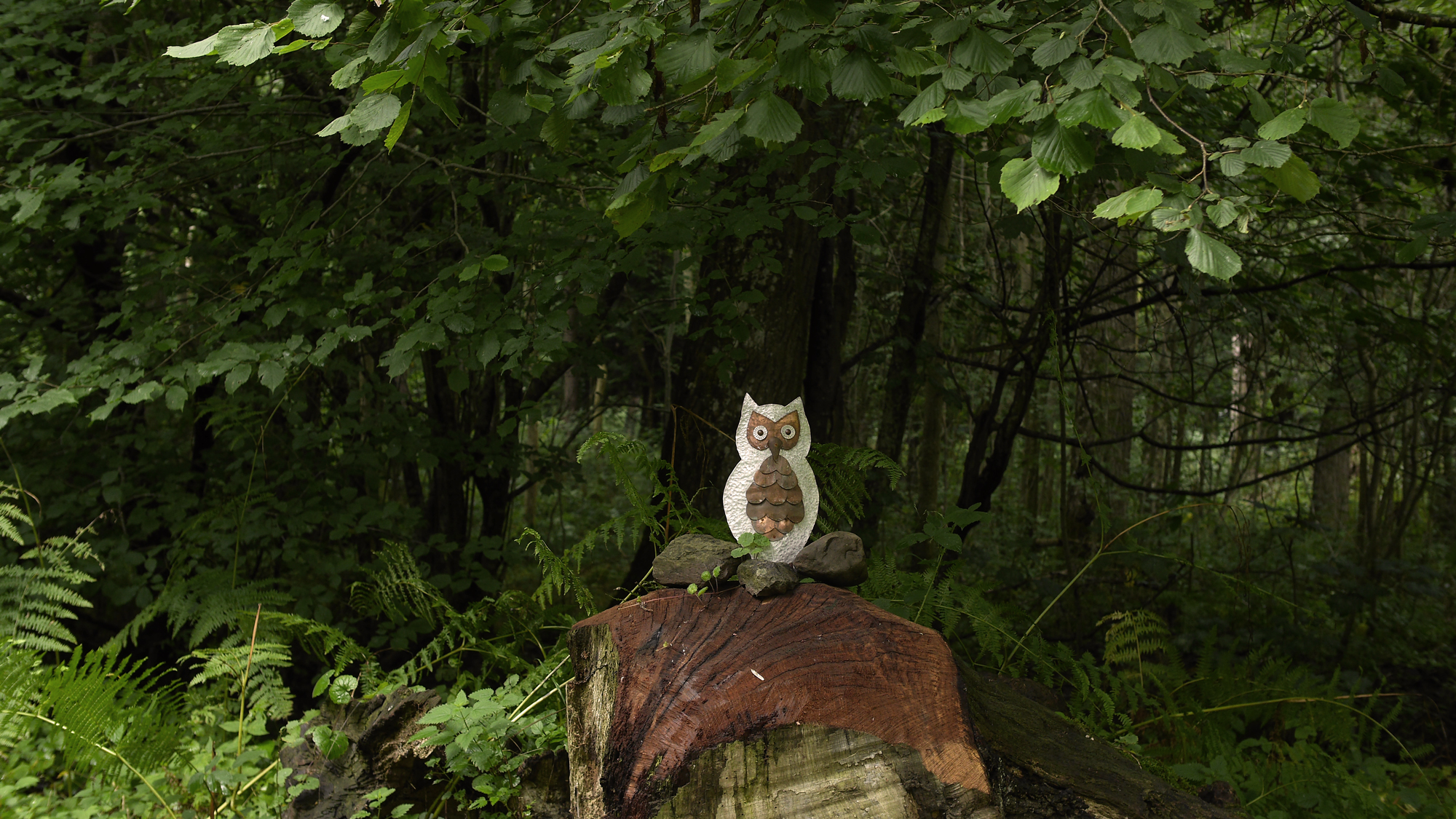
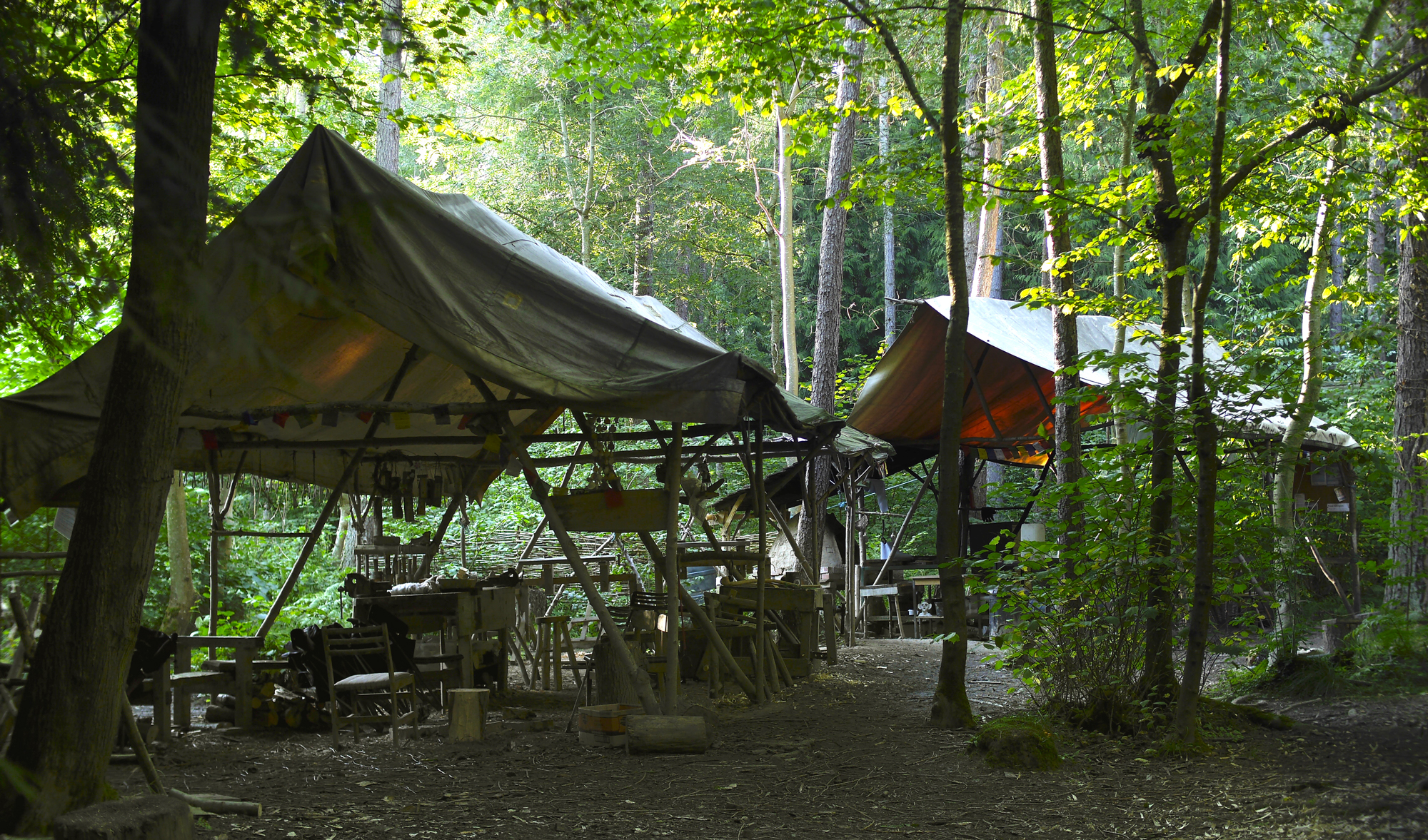
Making,
and Healing
in the Woods
One such "natural hospital" convenes in the ancient and oneiric woodland estate of Newport House, in England's Herefordshire county. One hundred steps into the woods, one unexpectedly encounters an owl of copper and aluminum perched above a partially sculpted tree bark. This unofficial guardian is the harbinger to a certain hidden life that is to unfold itself just few steps away.
The intermittent sounds of crackling fire, the gurgle of boiling water, wood being hammered and lathed, soft conversations that ebb and flow with bouts of laughter, a dog barking . . these are the familiar set of sounds that emanate daily from The Cart Shed's outdoor workshop and communal space. Openness, kindness, and complicity are always in the air.
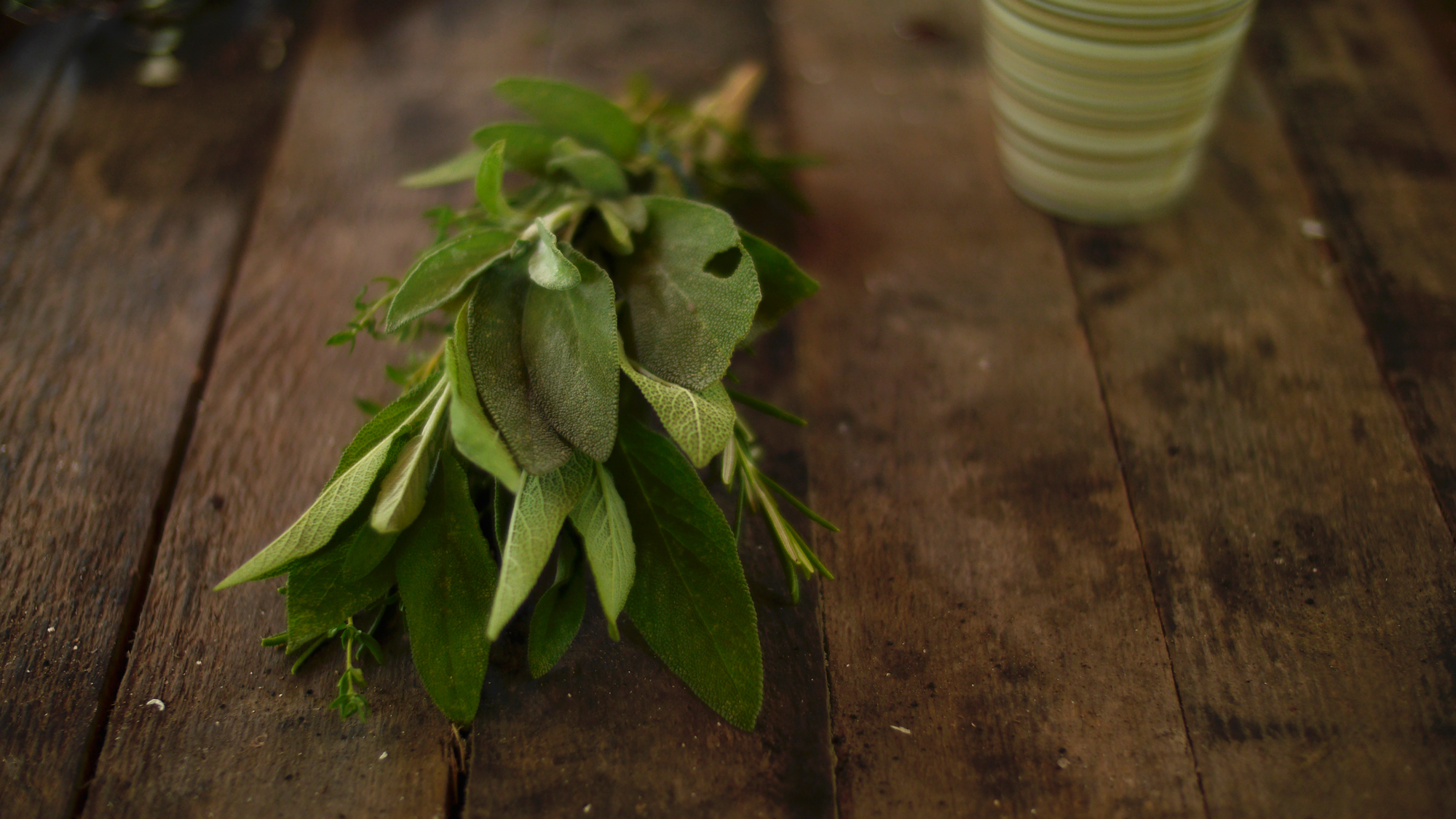
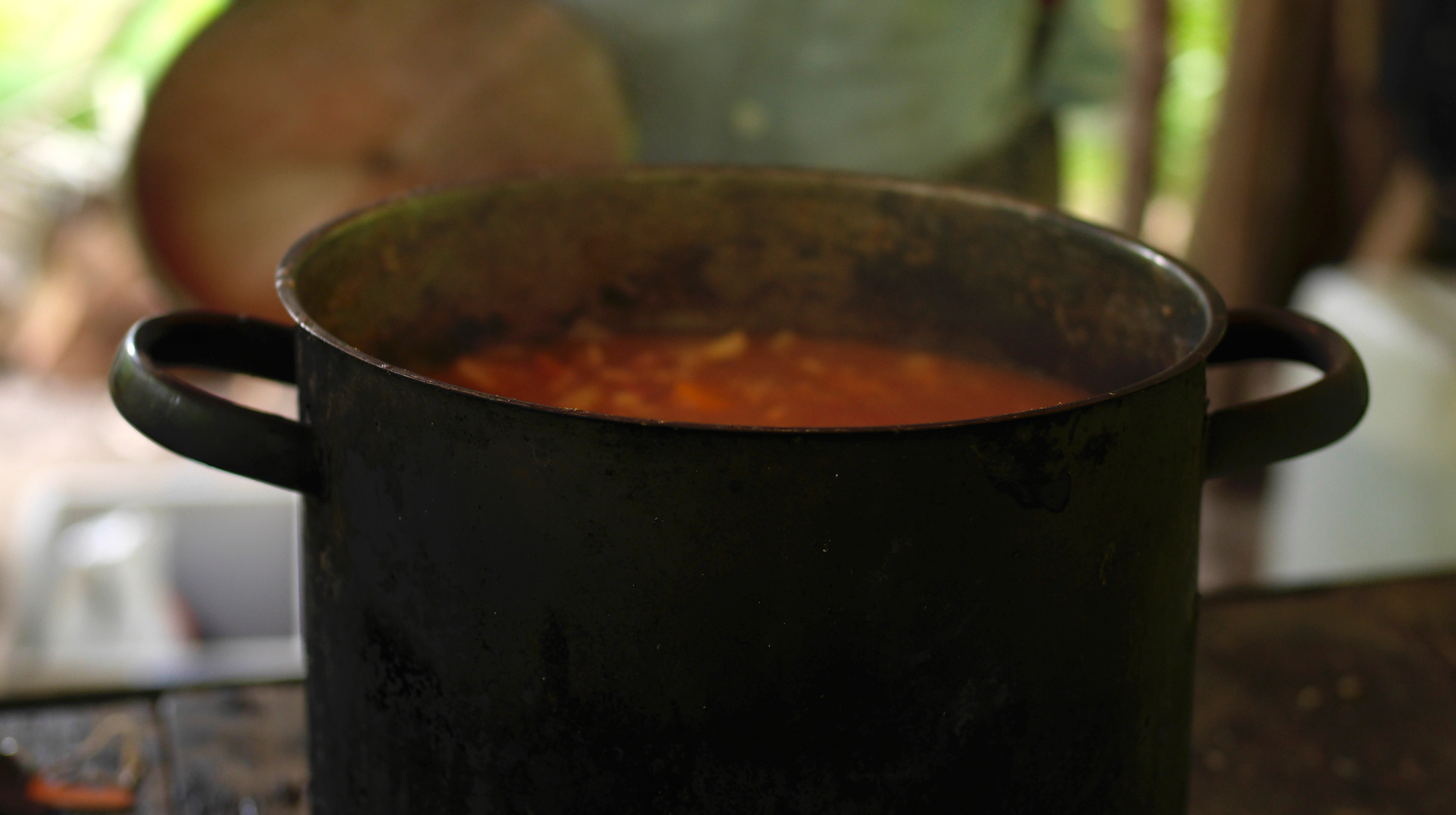
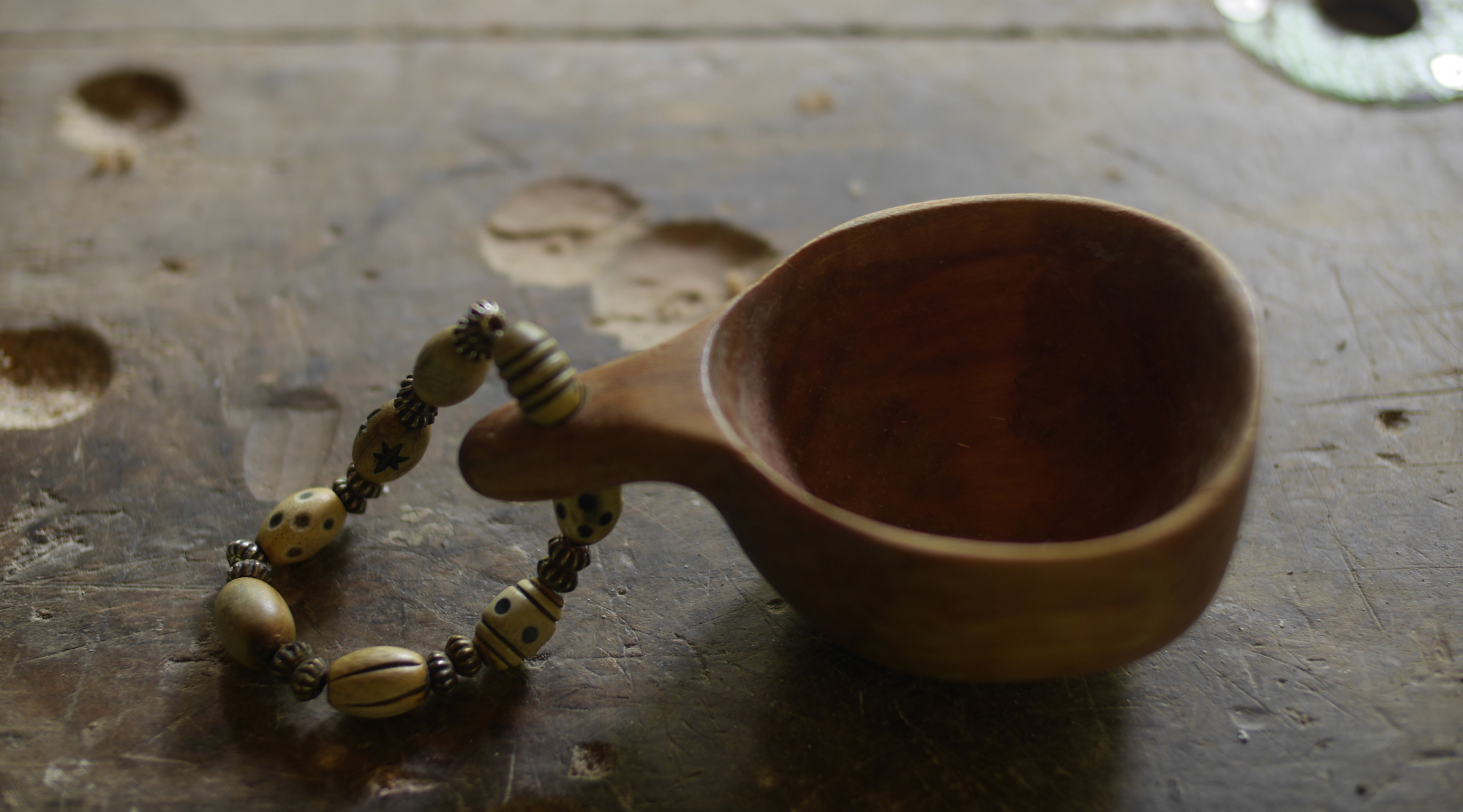
Sterile plaster walls do not exist here. In fact, there are no walls that separate the "indoors" from the glorious nature outdoors. The A-frame shelters are merely there as a protection from rain. Sounds from hard machinery do not exist here either. The sounds that emanate are from nature, human beings, or the interaction between natural materials and traditional hand tools inspired from a time in history when life was simpler. A clay oven and an open fire make up the "woodland kitchen," where organic vegetables harvested from the estate's walled garden are cooked for the well-being of the participants. An ever-present wood fire is the central gathering place to converse, banter, craft, share, or relish in solitariness. In place of uniformed and badged personnel, one finds inspired and heartfully committed volunteers whose profiles range from retired servicemen to master craftsmen, artists, nurses, gardeners, foresters, farmers, and occupational therapists. They possess the three most important skills: empathy, the ability to listen, and a strong belief in what they do.
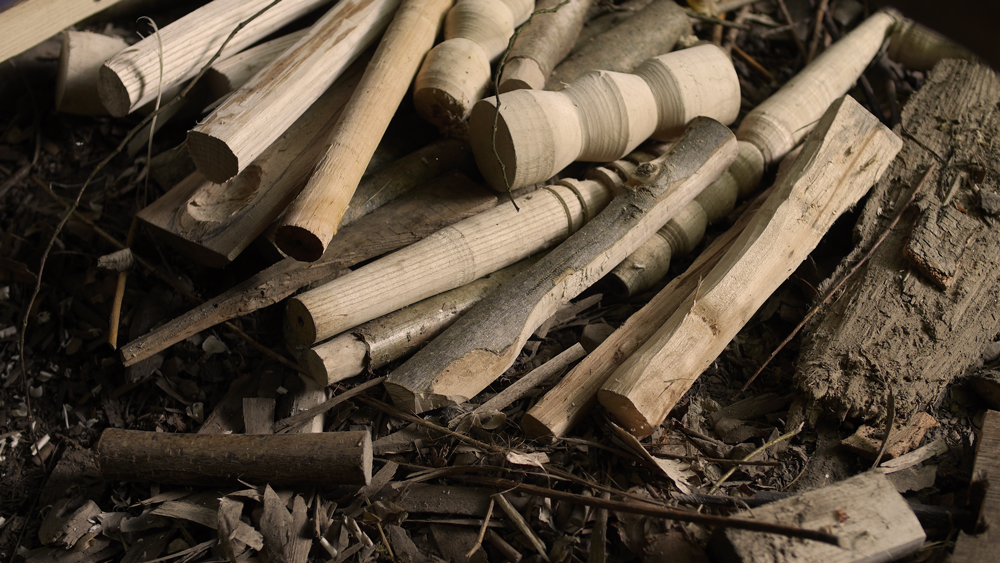
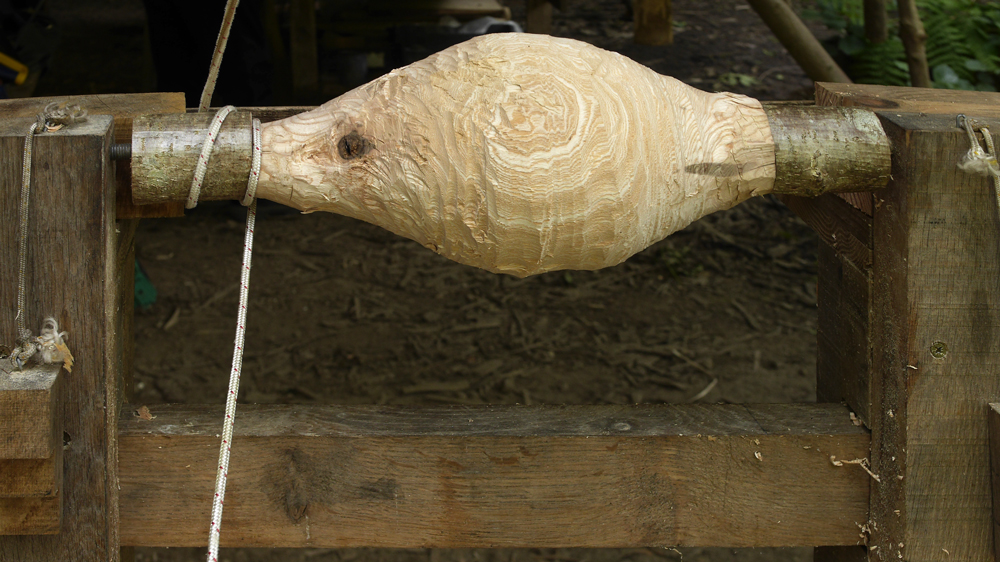
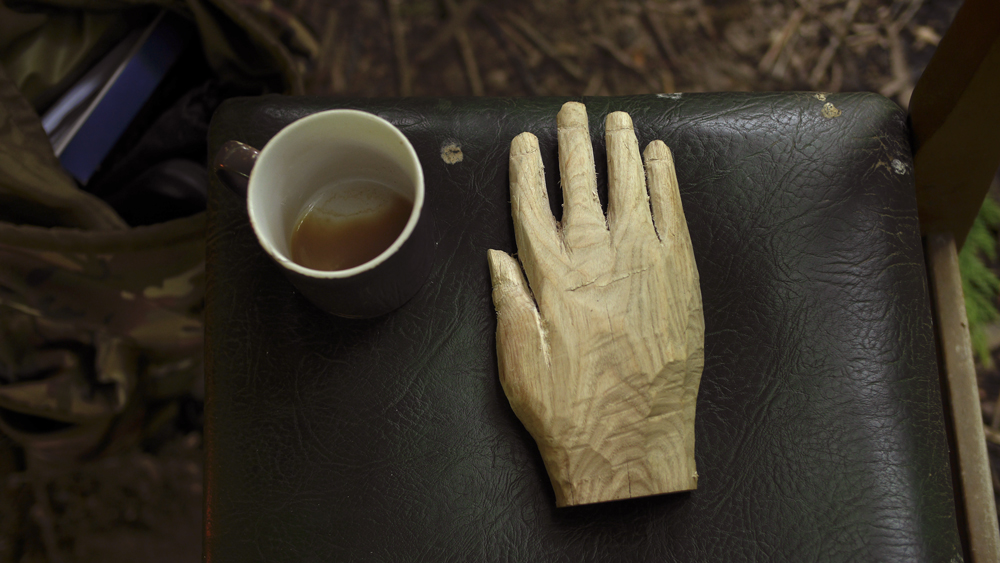
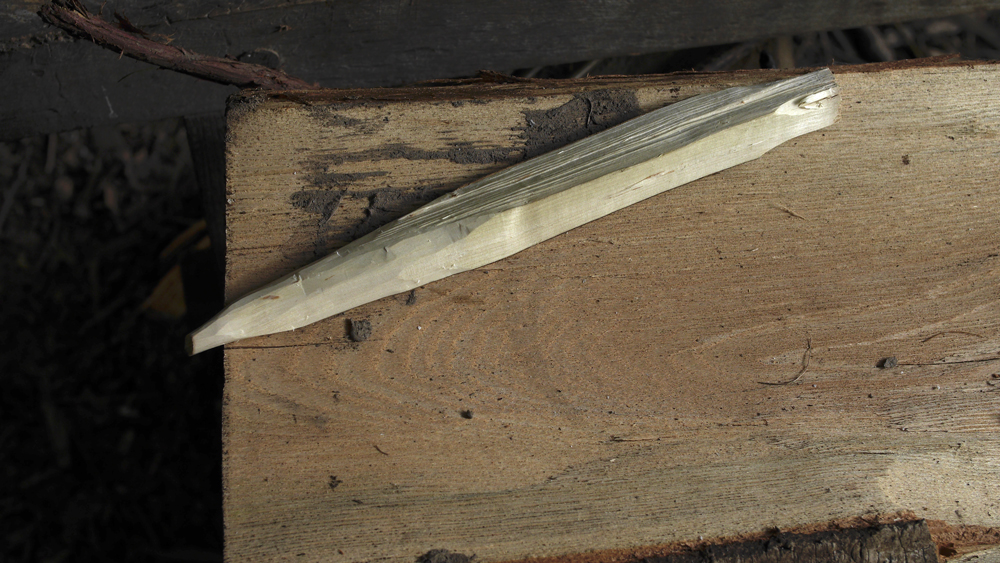
Whether it be a spoon, a kuksa* to drink water from the springs, or large and voluptuous wooden egg sculptures in a nest made from leaves gathered from the woods, each creation is an endeavor that comes with a priceless sense of achievement. Failure is accepted; if a spoon-to-be breaks in the middle of its making, simply start again. This is an inspiration to how we can approach the bigger picture of life.
(*) A type of drinking cup traditionally crafted by the Sami people of northern Scandinavia from carved birch burl.
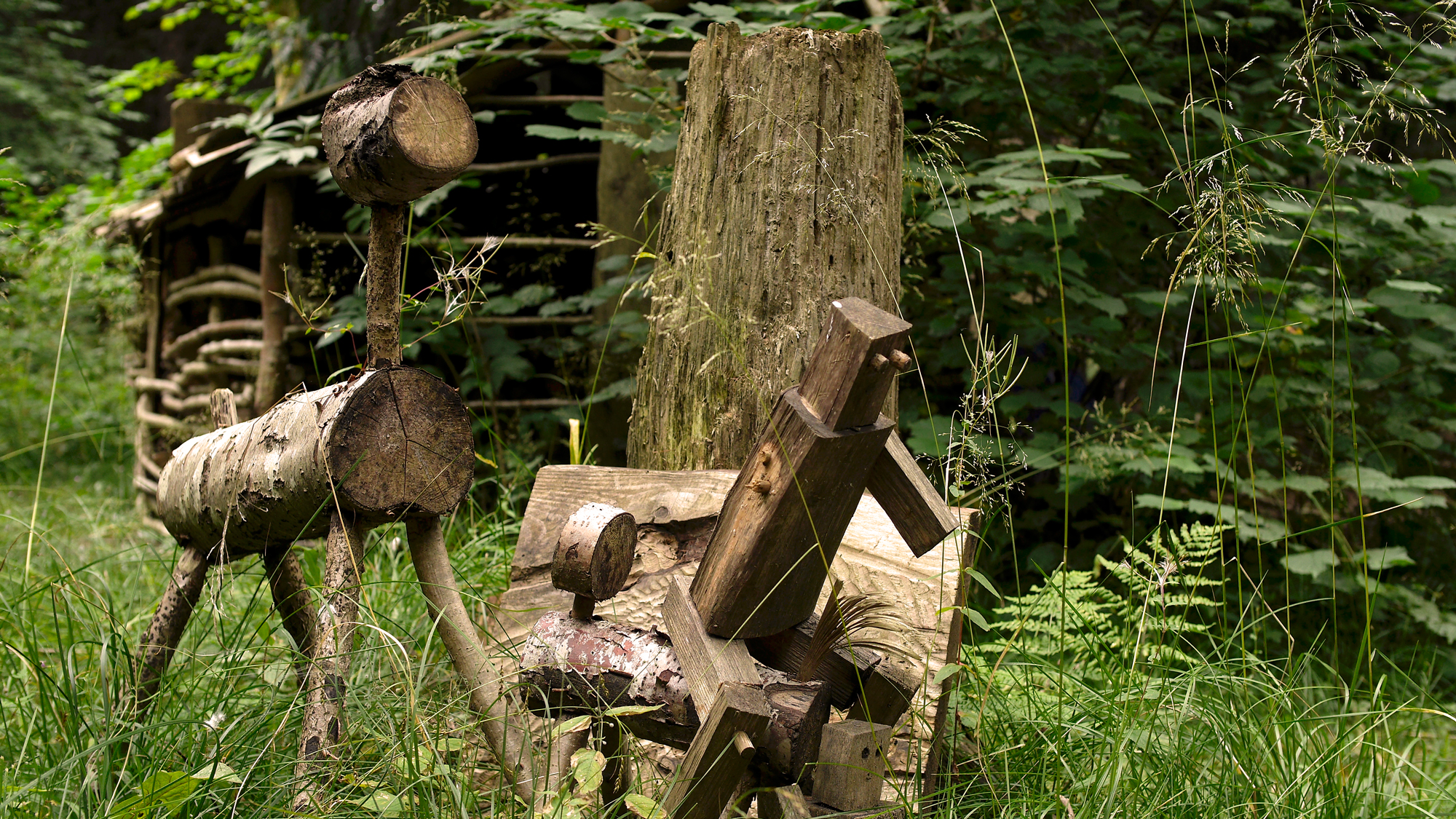
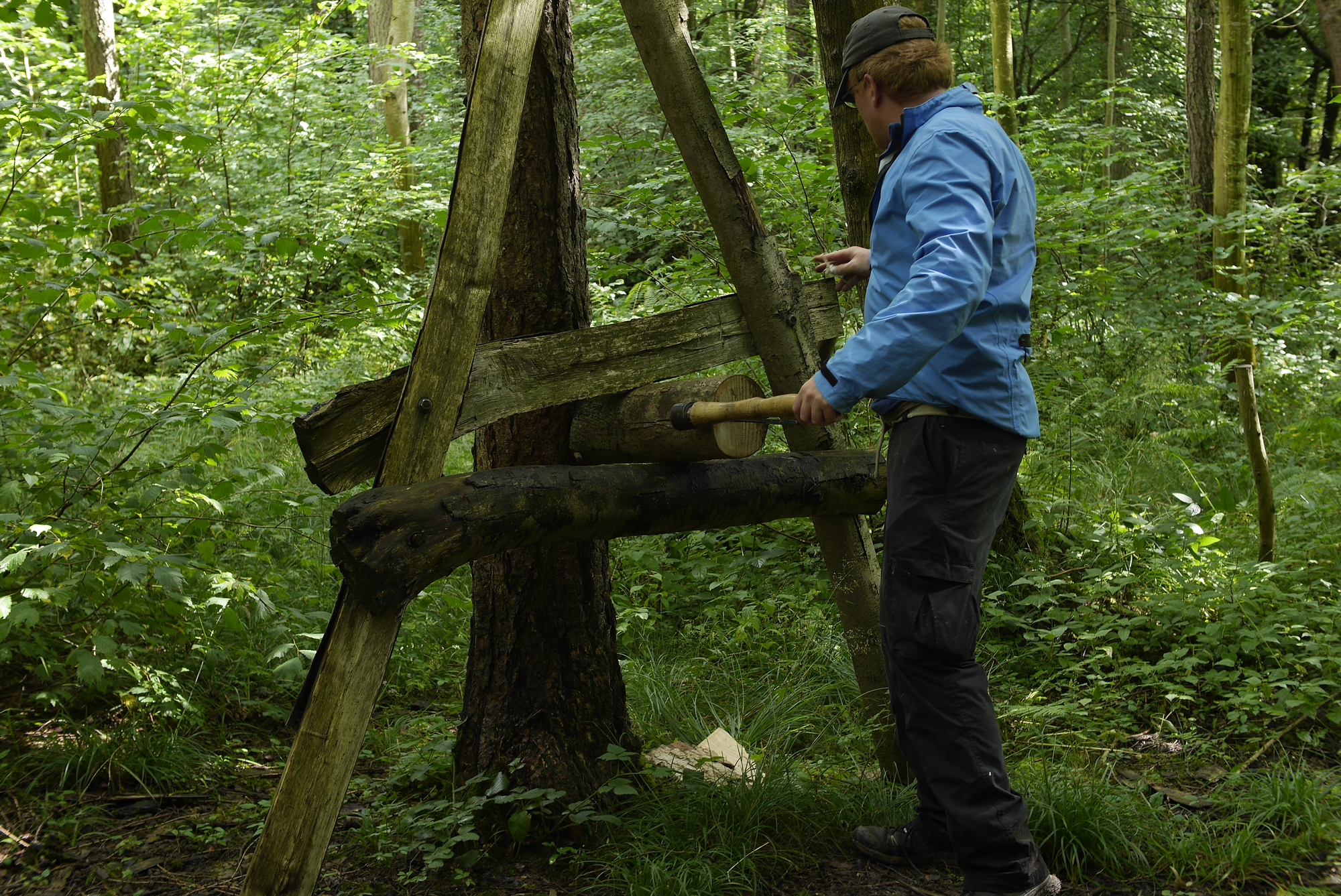
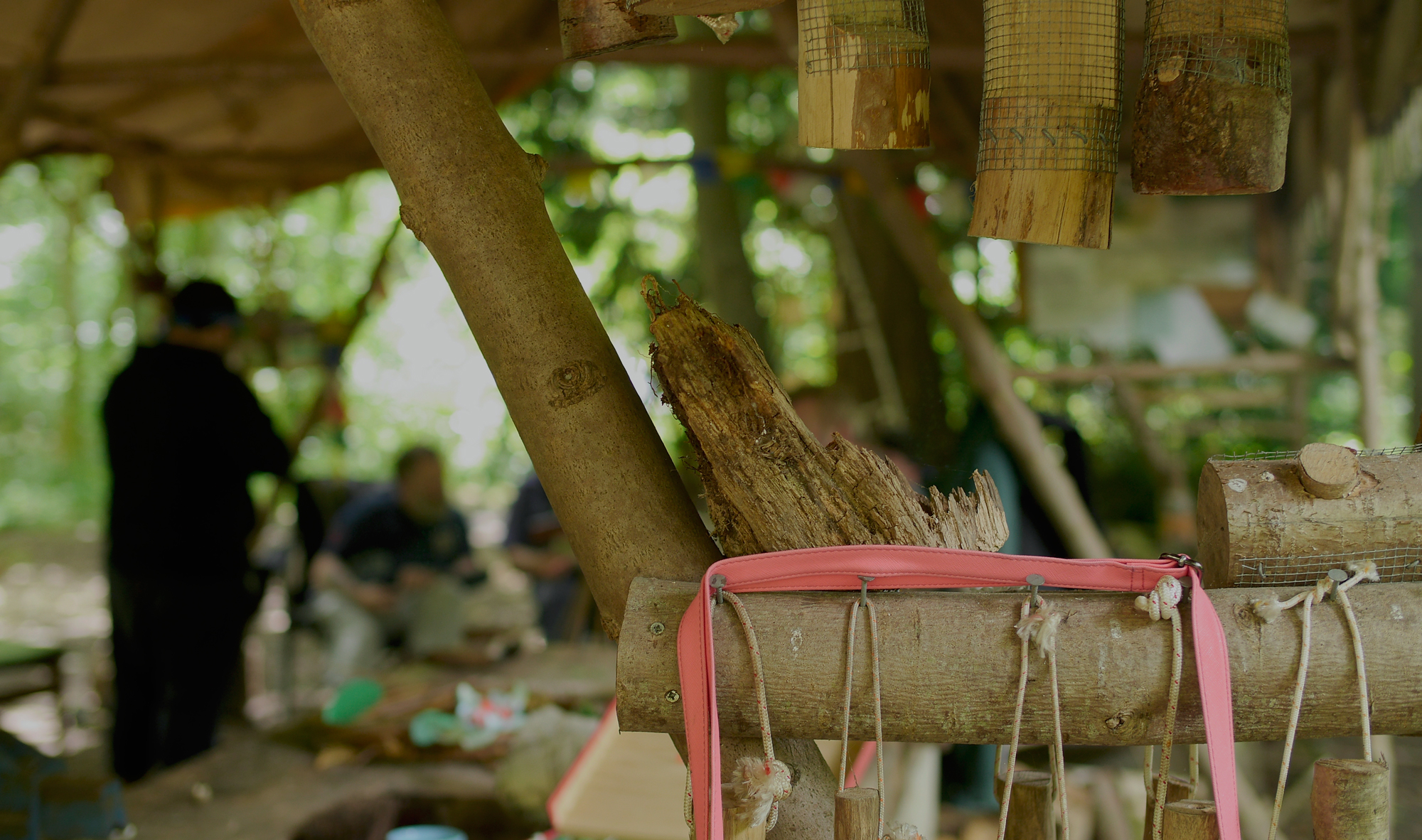
Friendship,
and Handmaking
as Medicine
The Cart Shed social project is an example of how publicly or privately owned land, such as Newport House, can be shared generously to engage and vitalize portions that have remained inactive. Not only does this resource approach create positive social experiences while providing a great environment for projects, it also supports forward-thinking ideas that foster a deeper relationship to nature and draw from ancient wisdom and practices.
By marrying primal elements—nature, community, and handmaking—as part of its program to heal people with mental health issues, The Cart Shed provides another approach to care and treatment. It triggers us to ponder why such "non-scientific" solutions actually work and provides affirmation that these elements can play a profound role in improving people's well-being.
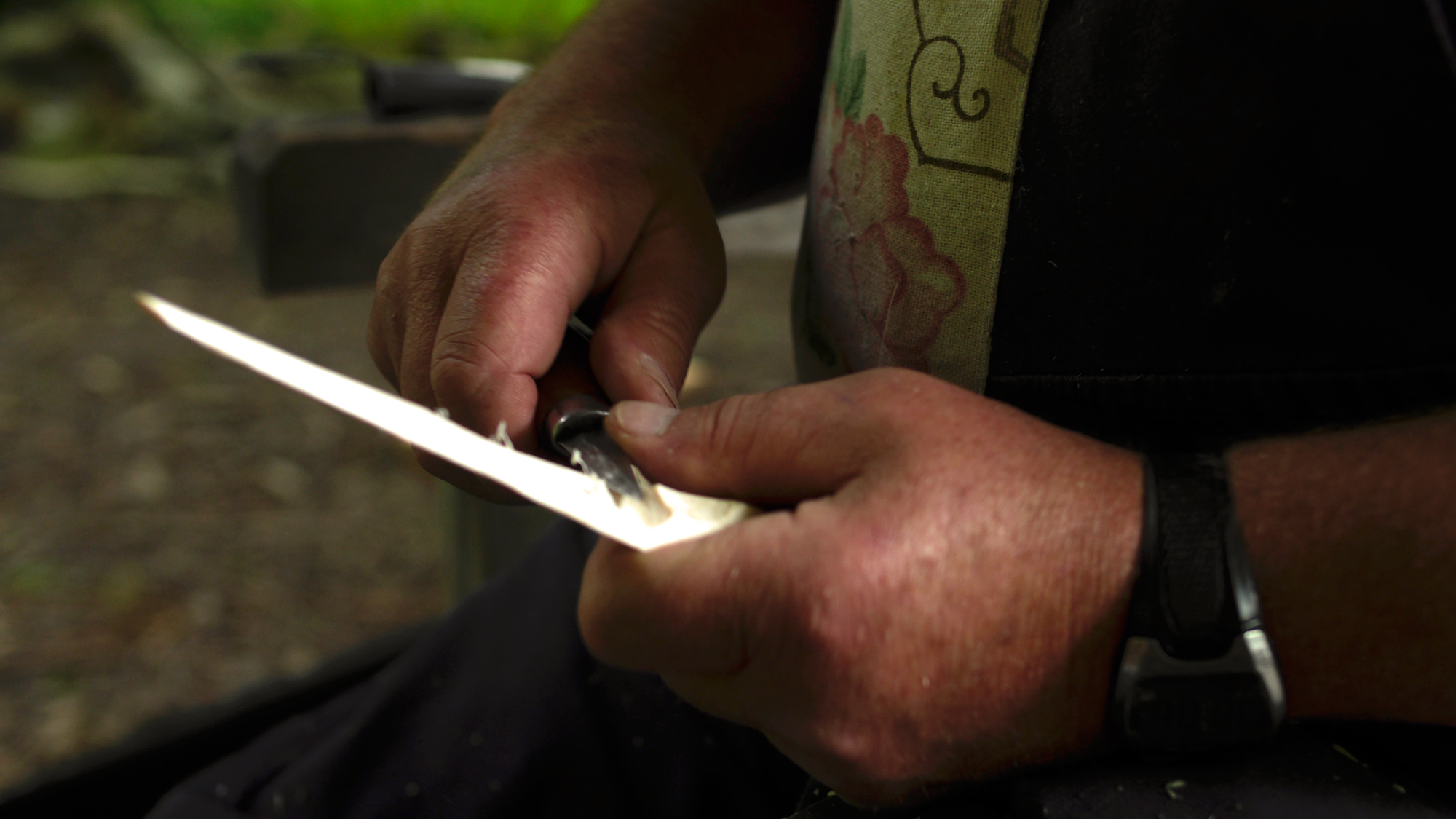
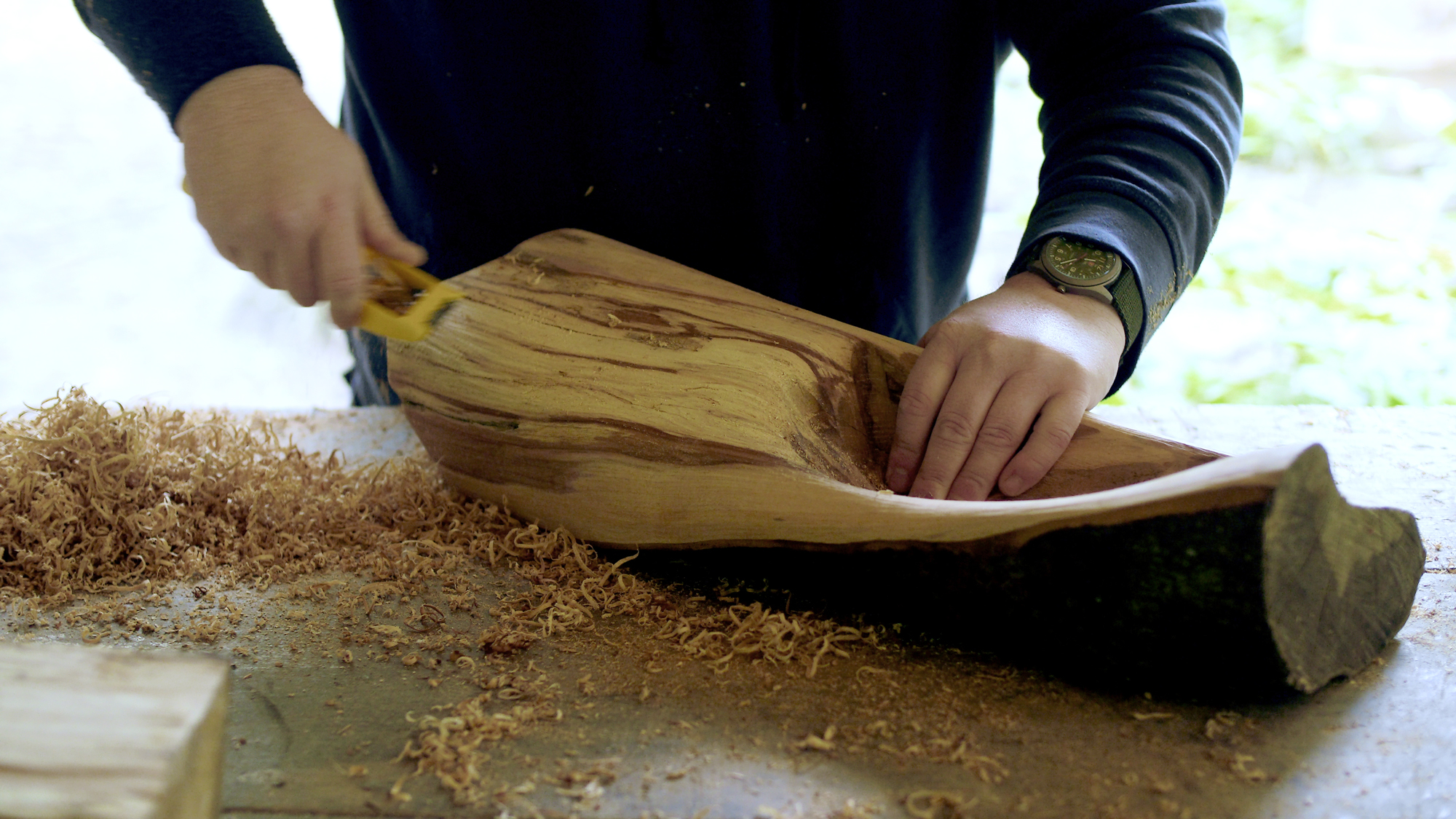
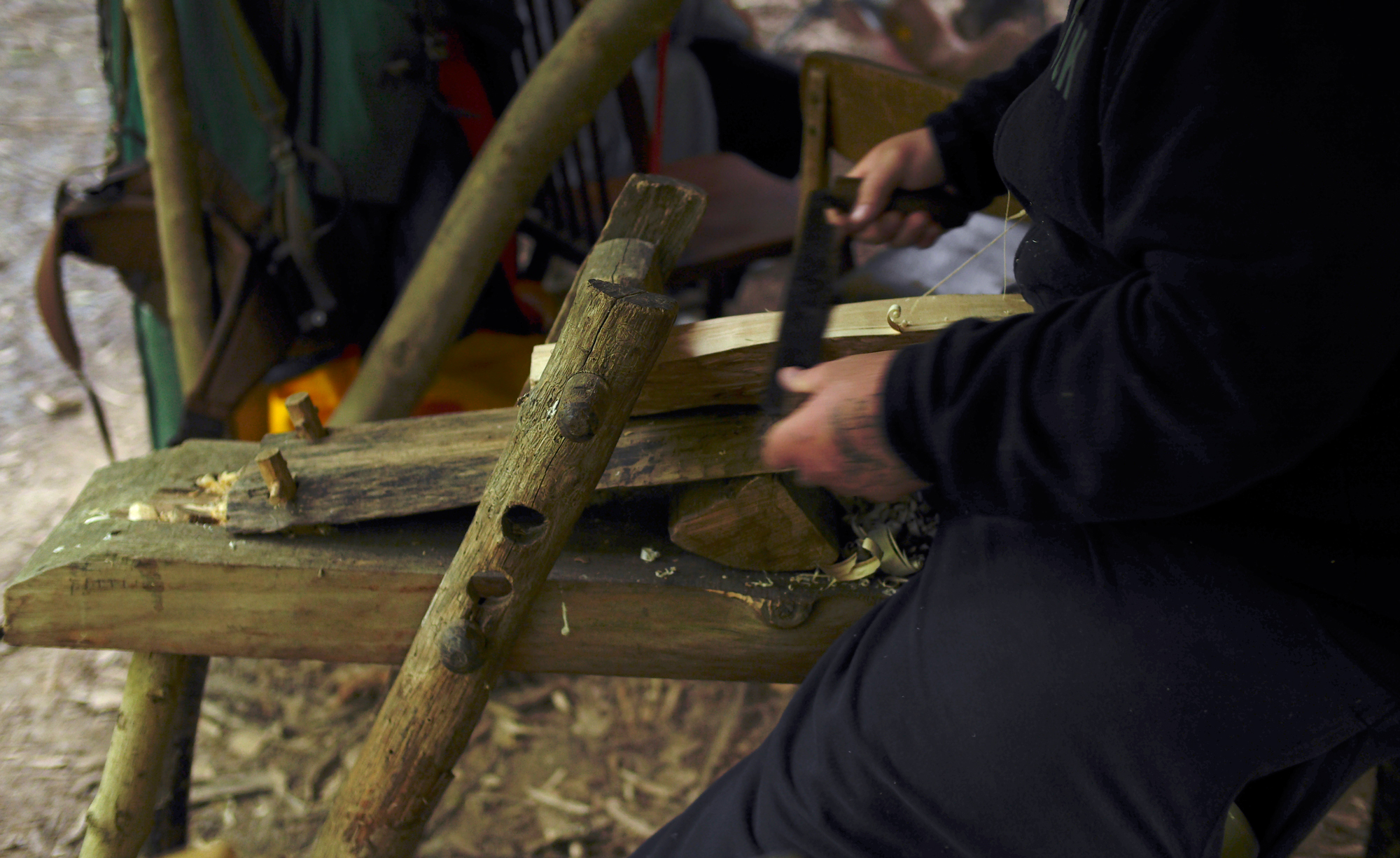
Henry David Thoreau was also an ardent prescriber of wilderness as the potent elixir to combat our discontent in his essay, Walden, or, Life in the Woods. In Japan, the healing practice of shinrin-yoku, or "forest bathing," addresses the physical and psychological health benefits of being immersed in the living forest and benefiting from breathing in plants' active substances. It attests to the connective and healing power of nature that also provides a sense of grounding. While shinrin-yoku as a practice originated from Japan in the 1980s and made its way to the West, the recognition of nature's power has always been part of the indigenous cultures that hold the longest relationship with natural surroundings.
The Cart Shed's year-round outdoor activity in the woods is one of its most intriguing aspects . Its commitment and partnership with nature the caregiver allows people to stay more in tune with transformations that come with each season, so that they can experience a more sensorial connection to nature: witnessing the leaves change color, experiencing shifts in temperature, listening to the sounds of rain, and smelling the flowers.
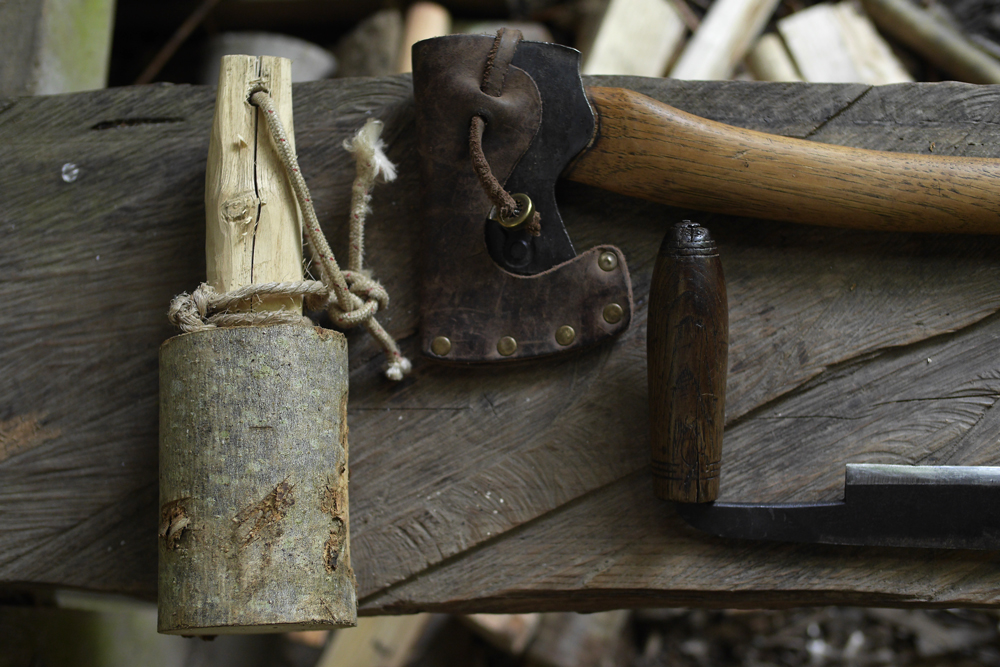
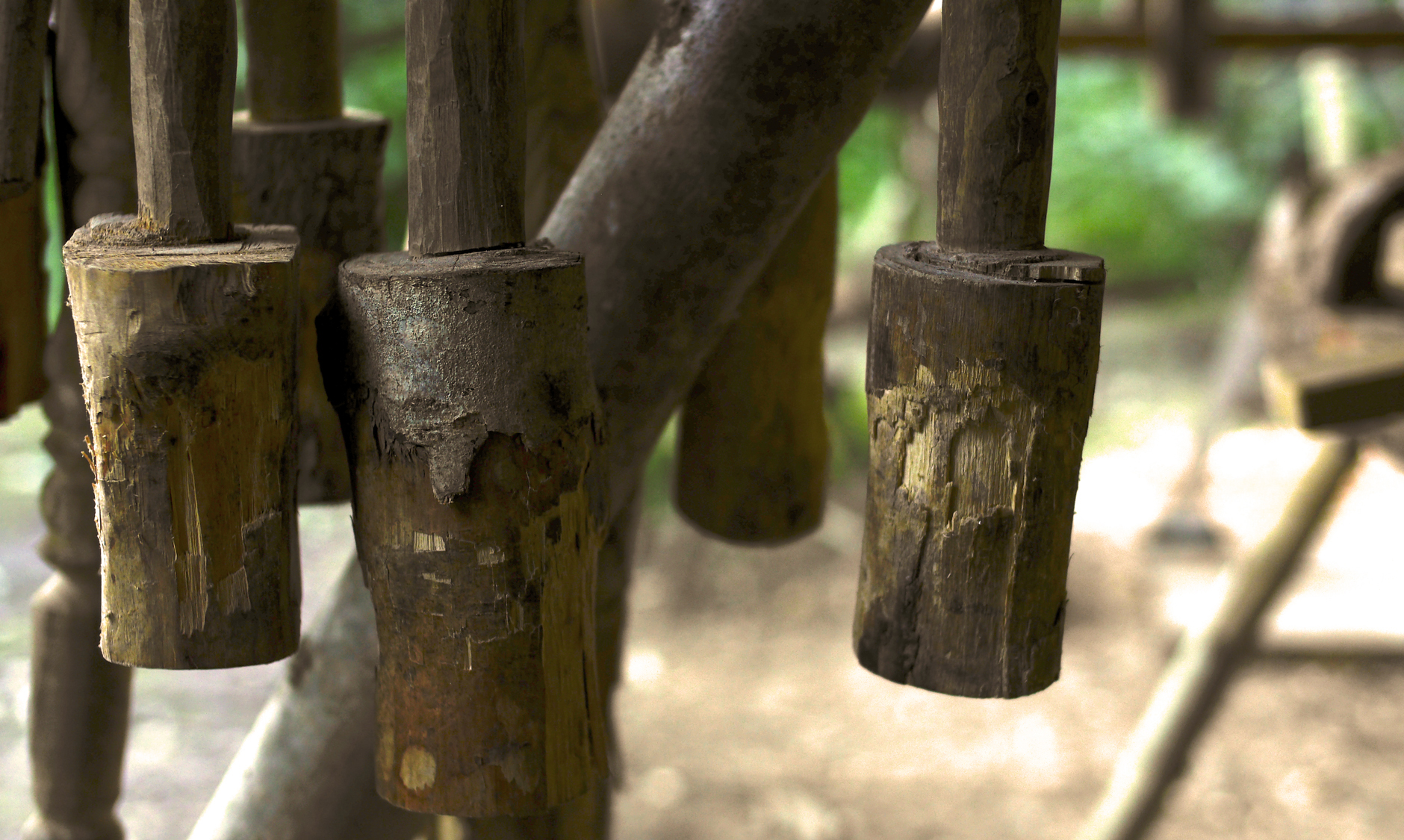
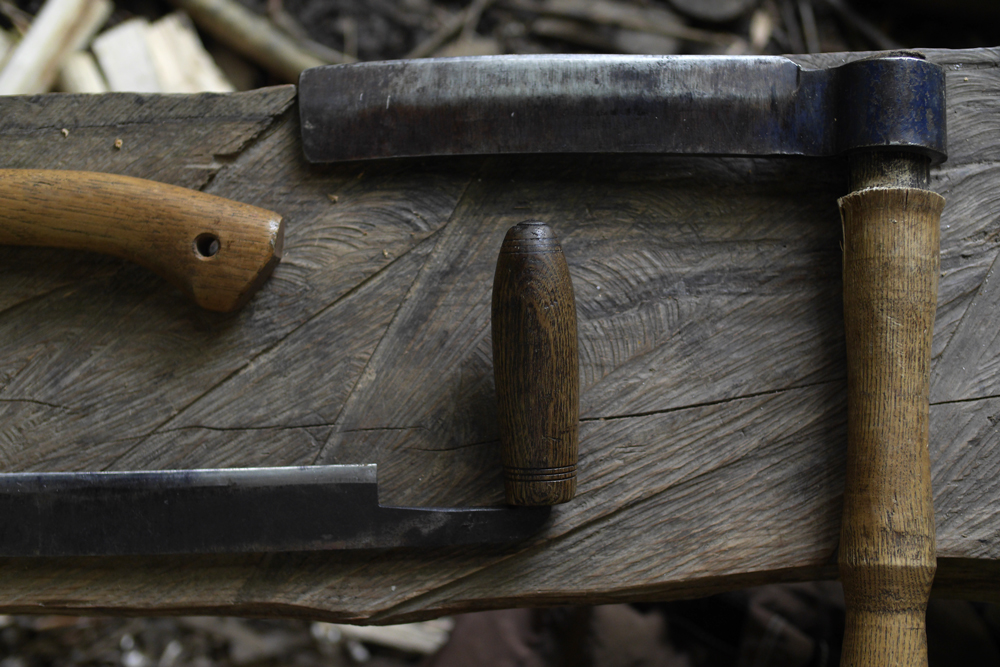
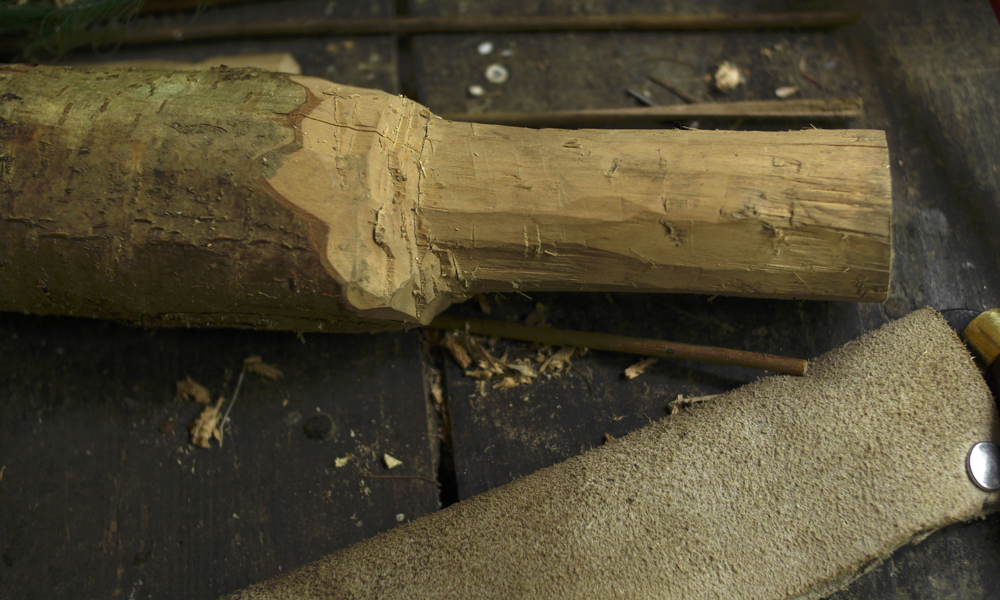
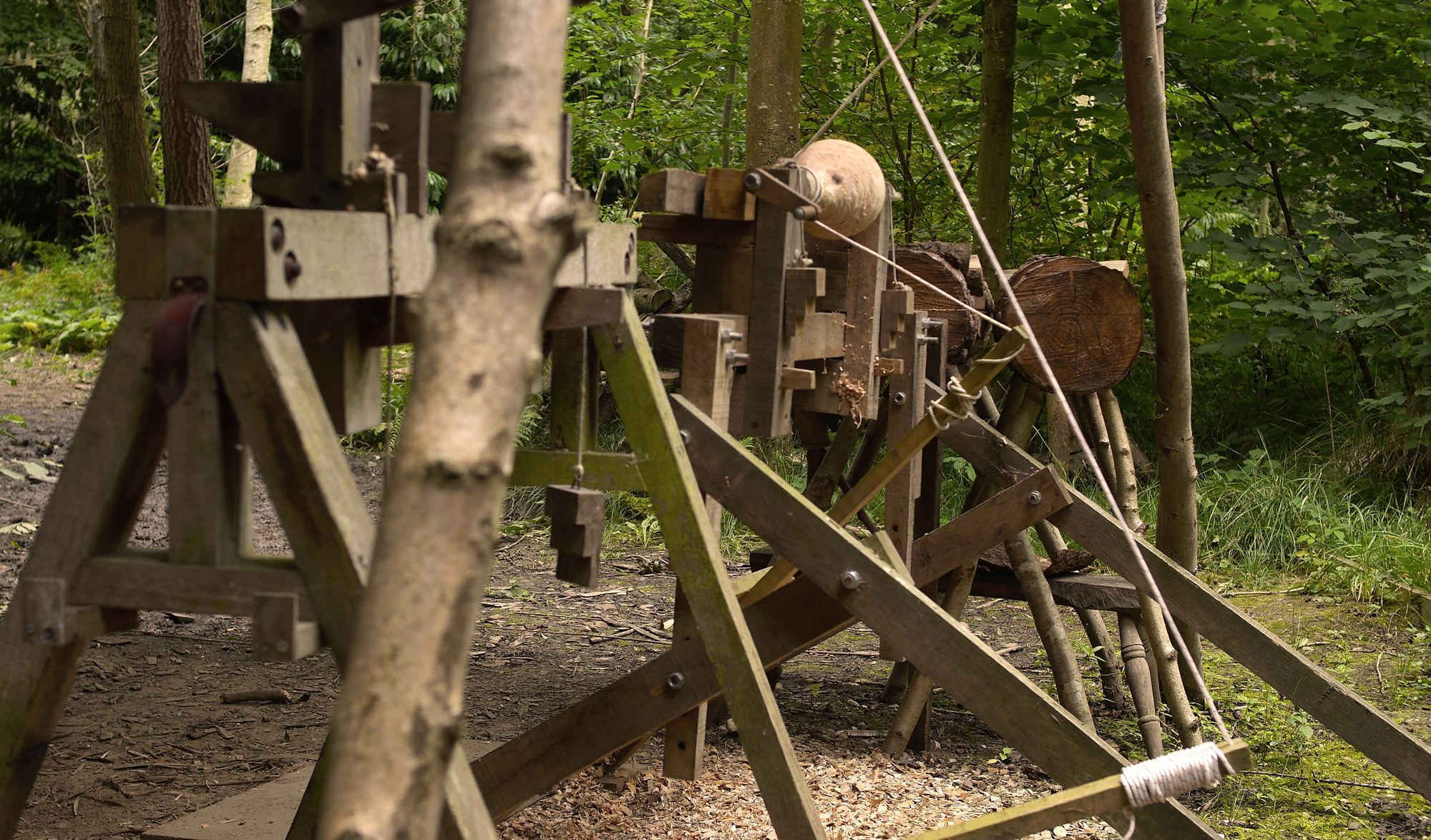
The environment, both visually and conceptually, has also been purposefully conceived to be as simple, open, and primal as possible in order to minimize physical or spiritual disconnection from the natural surroundings. A wood fire embodies community, belonging, and sharing in a safe environment. Ancient tools are gentler instruments for human creations and they empower the participants to develop skills, such as coppicing, coppice crafts, and basketry. The volunteers built most of the tools; they include pole lathes, adzes, draw knives, crook knives, axes, gouges, block planes, froes, billhooks, and mallets. Physically and sonically, they integrate more harmoniously into the natural environment, eliminating the violence of the machine-driven.
For Jenny Daneels Watt, who owns the Newport House estate with her husband and is one of the trustees of The Cart Shed, there is a connection between being out in nature, working with the hands, and healing. "The brain and the body are not two separate entities. They are completely linked. Hence, by using your body, you're rewiring your brain. The body and the mind naturally cry for healing. And somehow, being outdoors brings connection to something much bigger that enables the healing to happen. It's almost like the whole environment conspires to heal the areas that need to be healed. It certainly seems to work since we have witnessed great results. Science has much to discover and explain!"
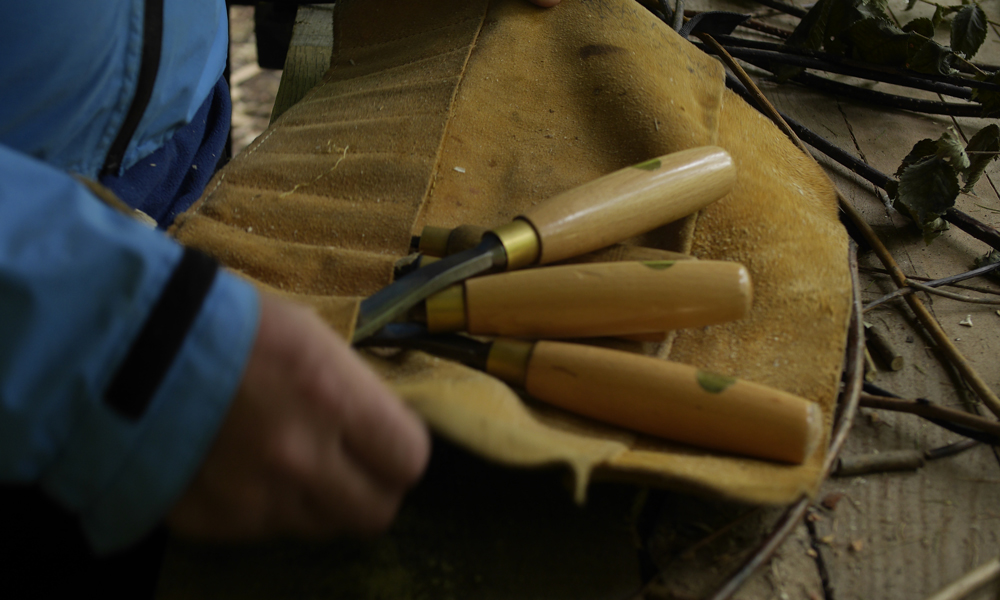
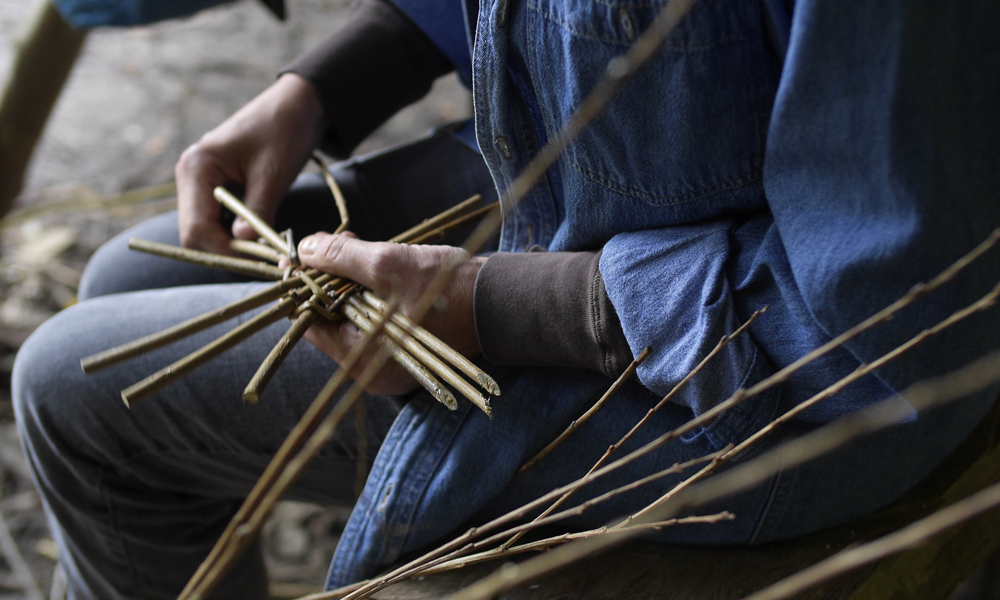
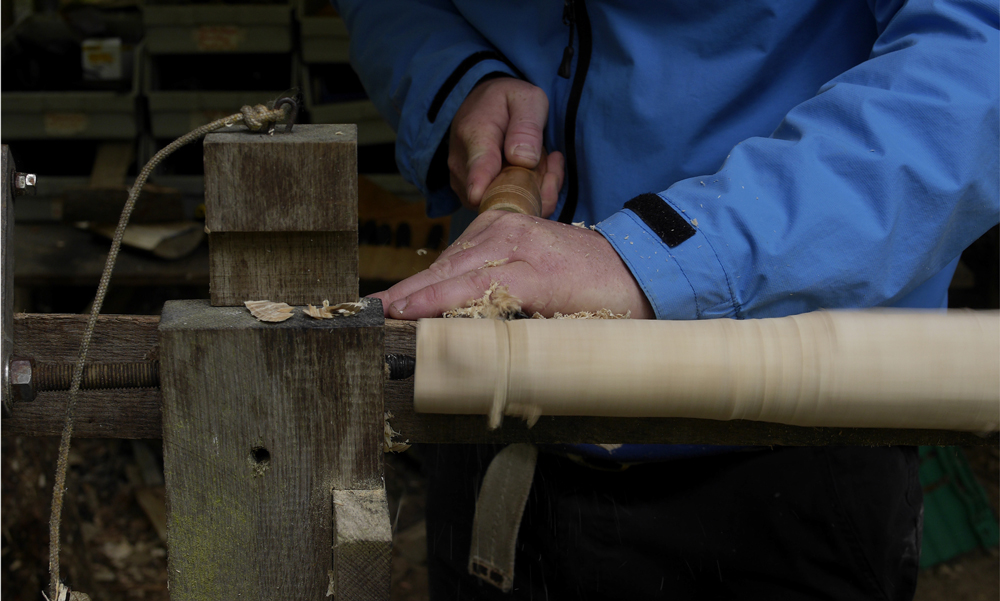
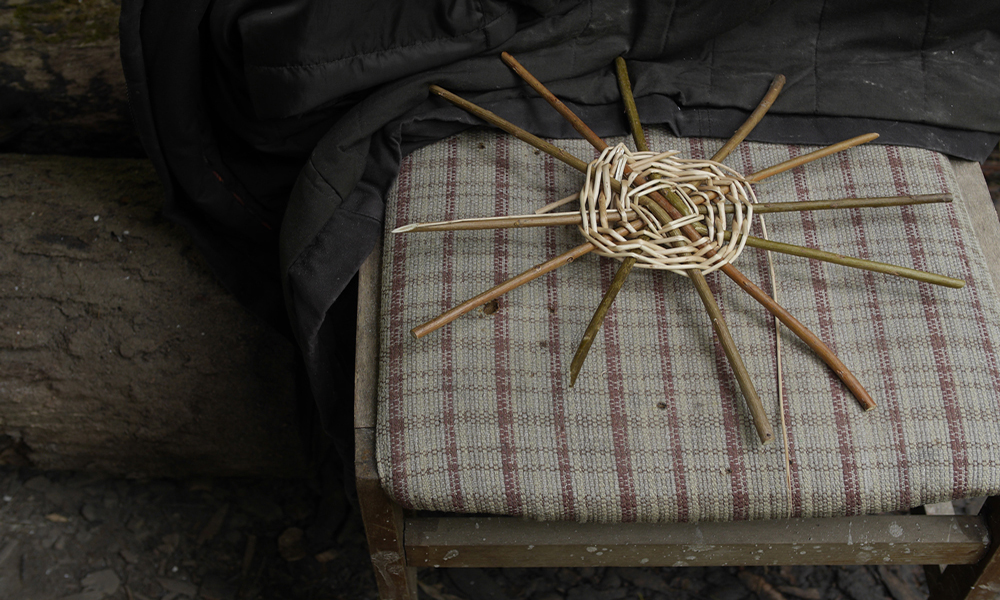
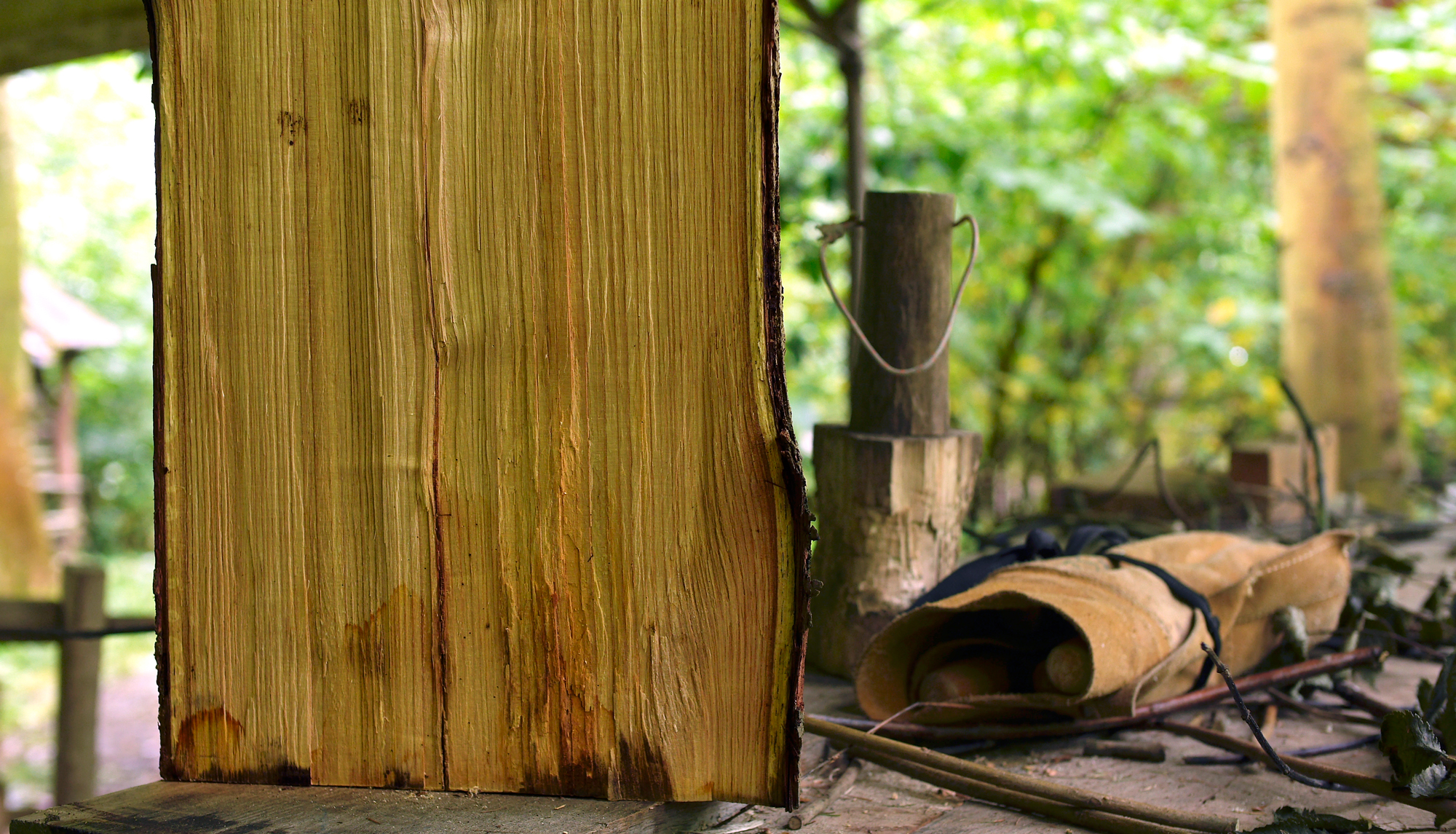
Ultimately, what grounds The Cart Shed's ethos, and the synergy between nature and handmaking, is the concept of community. A sense of belonging and nurturing friendships is also an integral part of healing. "There's a circle, a whole network of volunteers, ex-clients, clients…which feels like family and a safe place for people. It is about being outdoors, yet being in a safe, human environment and held by a community," explains Jenny. "One aspect of the project is working with companies to help its staff members who are dealing with stress or bereavements. So we offer service for the staff to come once a week just to have time out to process whatever they need to process. There's no pressure to be anything. If you don't want to talk, no need to talk. And no one is going to judge you."
One of the training managers of The Cart Shed recalls a visit by Satish Kumar, the founder of Schumacher College and the great teacher of holistic education, who poignantly described it as a "natural hospital."

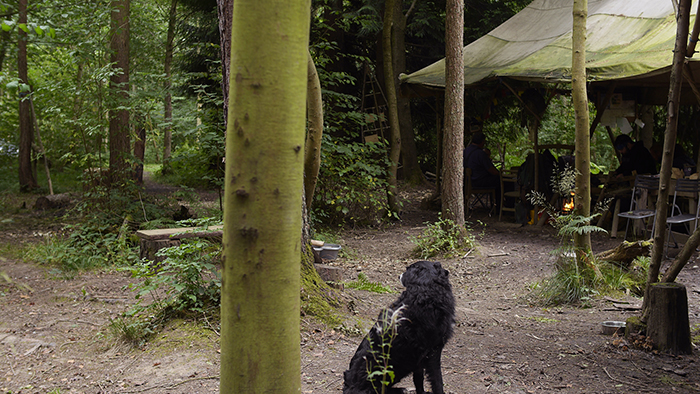
The Cart Shed is a charity that works with vulnerable groups and individuals across Herefordshire and the Welsh Borders with a particular focus on improving their mental health. It provides life skills and opportunities in a beautiful, safe, and supportive environment to empower its participants who have experienced trauma or challenges as a result of military service, difficult working conditions, or poor health. Its programs offer a range of courses, activities, and work experience in coppicing, coppice crafts, hedging/fencing and horticulture. For those wishing to donate to the organization, please visit: thecartshed.co.uk/about_us/support_us/
Mona Kim is the Founder and Curator of Moowon. As the Creative Director of award-winning multidisciplinary design studio, Mona Kim Projects, she has been conceiving public space experiences and large-scale experiential projects for global brands and cultural institutions. Her museum and exhibition design for the Canadian Museum of Human Rights, World Expo, Museum of Tomorrow (Museu do Amanhã), and UNESCO-sponsored projects, gave her the opportunity to document and be exposed to some of the most distinctive examples of social realities and cultural expressions. On these projects, she had co-curated world issues such as endangered languages, cultural diversity and sustainability. The Moowon project is an extension of this background. Her work has been featured in The New York Times, WWD(Women's Wear Daily), The Creative Review, and in publications by Gestalten and The Art Institute of Chicago.

EDITING: COPYRIGHT © MOOWON MAGAZINE / MONA KIM PROJECTS LLC. ALL RIGHTS RESERVED.
PHOTOS & TEXT: COPYRIGHT © MONA KIM / MOOWON MAGAZINE. ALL RIGHTS RESERVED.
TO ACQUIRE USAGE RIGHTS, PLEASE CONTACT US at HELLO@MOOWON.COM
